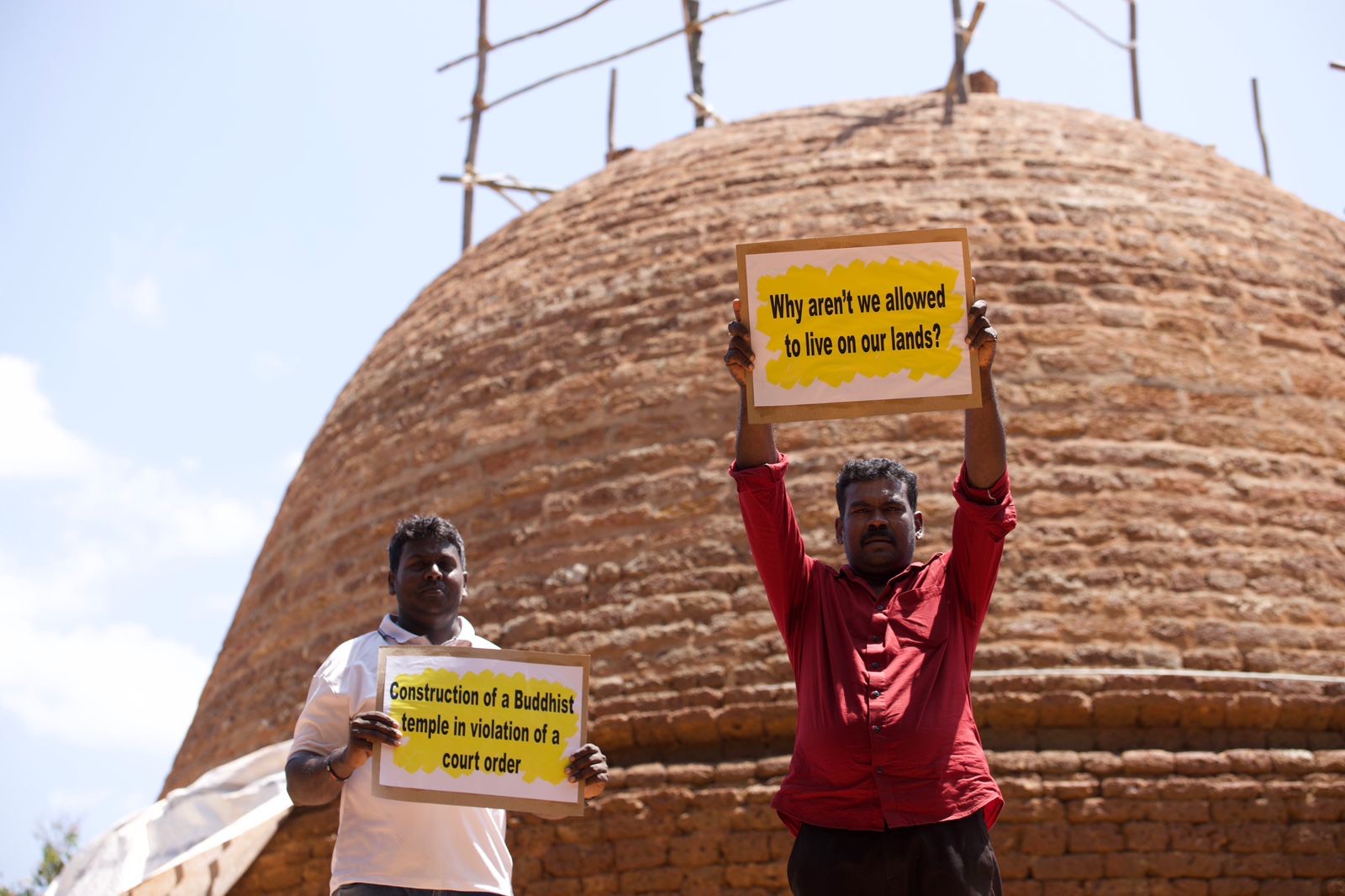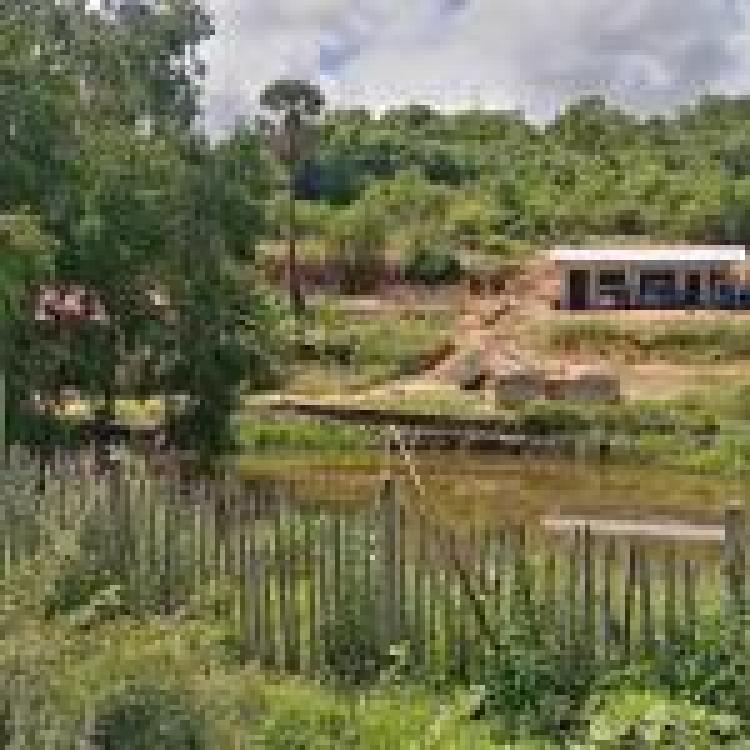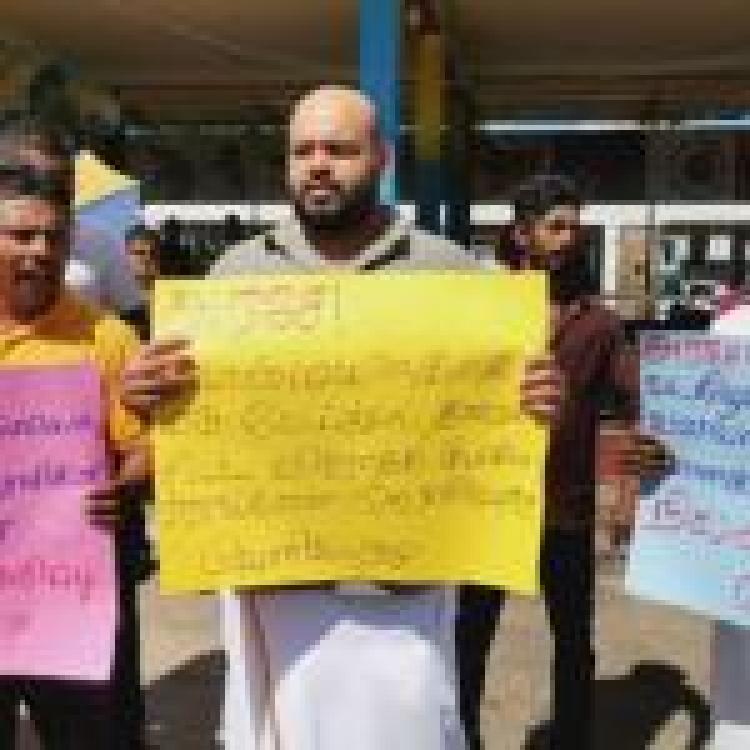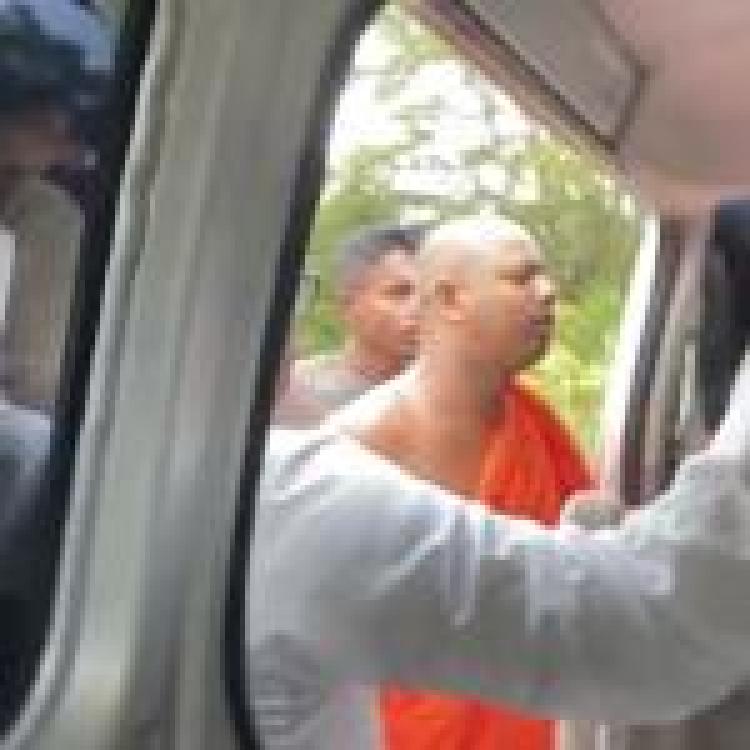
Photograph: Tamils protest against the illegal construction of a Buddhist vihara in Kurunthurmalai, Mullaitivu in 2022.
The government of Sri Lanka has been elected to the Executive Board of the United Nations Educational, Scientific and Cultural Organisation (UNESCO), despite its continued efforts to eradicate Tamil culture and embed Sinhala Buddhism in the North-East of the island.
Sri Lanka will now serve for the term 2023-2027, after securing 144 votes out of 188 member states in Paris last week.
“The Ministry of Foreign Affairs together with the Sri Lanka Embassy in Paris and the Ministry of Education (National focal point) is pleased to have spearheaded the successful effort to ensure Sri Lanka’s election to UNESCO Executive Board,” said a government statement in the aftermath of the vote.
“It is notable that in the past months, Sri Lanka has been successful in consecutively being elected to 3 UN bodies/committees: Committee on the Elimination of All Forms of Discrimination Against Women (CEDAW), Committee on the Protection of the Rights of All Migrant Workers and Members of their Families (CMW), and the UNESCO Executive Board.”
The election of Sri Lanka to UNESCO comes as government officials work with the military to intensify Sinhalisation efforts in the Tamil North-East.
In particular, the construction of Buddhist viharas has taken place in Kurunthurmalai, Mayilaththamadu and Iluppaikulam.



